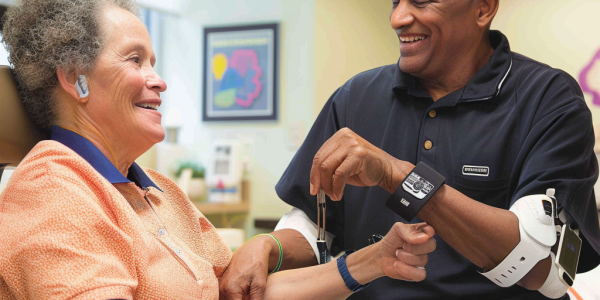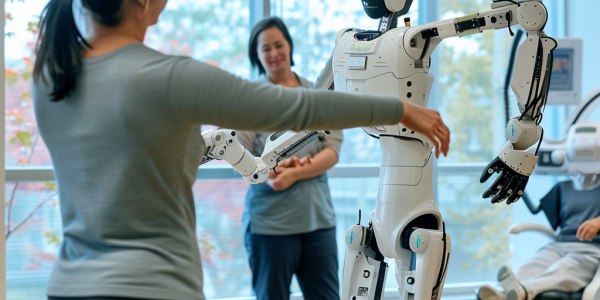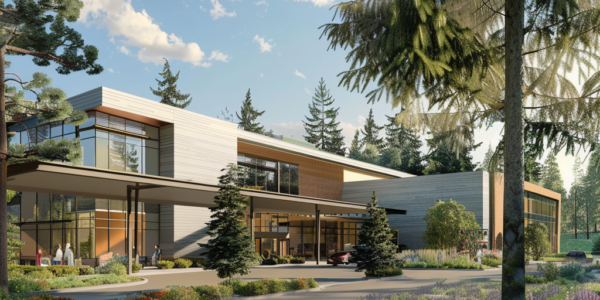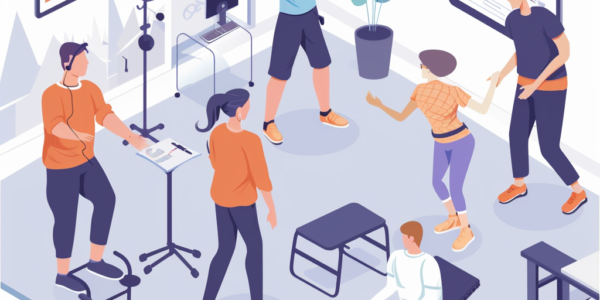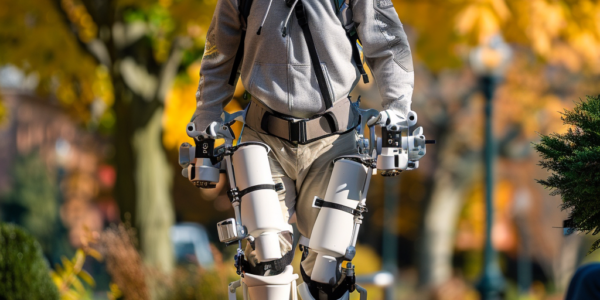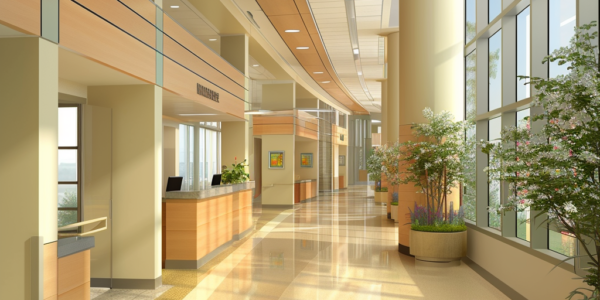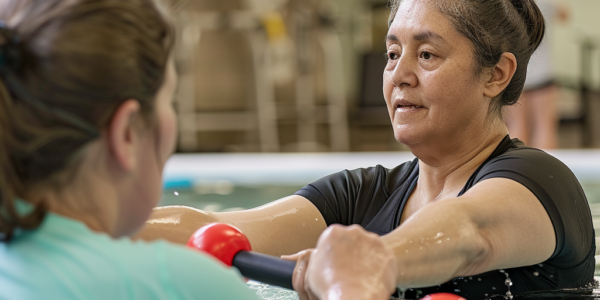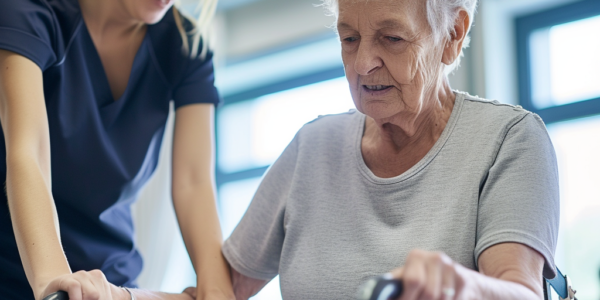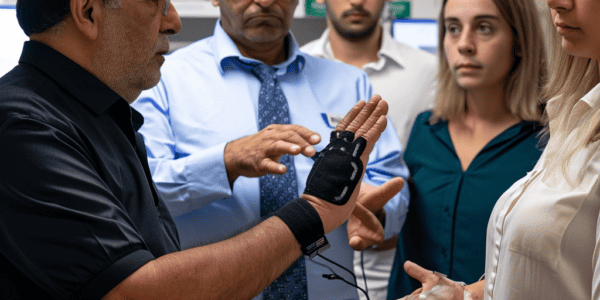Innovative TRICEPS Trial Explores Non-Invasive Nerve Stimulation for Stroke Recovery
Stroke patients at King’s College Hospital are part of the groundbreaking TRICEPS trial, exploring transcutaneous vagus nerve stimulation (TVNS) to improve hand and arm mobility. This innovative, non-invasive therapy offers new hope for stroke recovery, allowing patients to participate from home without surgical procedures. Led by Sheffield Teaching Hospitals, this £2 million trial aims to assess the effectiveness of TVNS in enhancing rehabilitation for stroke survivors experiencing arm weakness.
Rehabilitation Robots: Modest Benefits and Future Potential in Stroke Recovery
A recent meta-analysis reveals the modest effectiveness of rehabilitation robots in post-stroke recovery, showing only a 3% increase in upper extremity strength among patients. While robotic systems offer some benefits, particularly for early-stage recovery, their overall impact may not significantly enhance daily functioning. The study highlights the need for further research and innovation in rehabilitation robotics, especially with emerging technologies like brain-machine interfaces.
PeaceHealth to Construct 67,000 Square-Foot Rehab Hospital in Springfield
PeaceHealth has received approval to construct a 67,000-square-foot rehabilitation hospital in Springfield, Oregon. The facility, majority owned by PeaceHealth and operated by LifePoint Rehabilitation, will provide physical, speech, and occupational therapies for individuals who have experienced catastrophic medical events. The estimated cost of the project is $72 million, with completion expected by January 2026. The new hospital will include the region’s first brain injury unit and address a significant community need for inpatient rehabilitation services.
UBC Okanagan Researchers Investigate New Ways to Help Stroke Survivors Recover Lower Body Movement
University of British Columbia Okanagan researchers are investigating new ways to help stroke survivors recover movement in their lower body, from hips to feet. Virtual rehab and self-management can enhance care continuity for patients returning to their communities and boost their overall quality of life.
Groundbreaking Robotic Hip Exoskeleton for Stroke Recovery
A recent study by the University of Massachusetts Amherst introduces a portable robotic hip exoskeleton designed to improve walking function in stroke survivors. With over 80% of stroke patients experiencing walking difficulties, this innovation holds promise in significantly enhancing their daily lives and overall quality of life. The research highlights the potential of the robotic hip exoskeleton to effectively train individuals to modify their walking asymmetry, offering a new avenue for stroke rehabilitation.
UW Health, UnityPoint Health, and Lifepoint Rehabilitation to Develop Second Inpatient Rehabilitation Hospital in Wisconsin
UW Health, UnityPoint Health – Meriter Hospital, and Lifepoint Rehabilitation are partnering to develop a new freestanding inpatient rehabilitation hospital in Fitchburg, Wis. The facility will offer specialized care for adults recovering from neurological disease, stroke, brain or spinal cord injury, and other conditions. This expansion aims to address the growing need for rehabilitation services in the region, with an anticipated opening in 2026.
Study Reveals Impact of Long COVID on Exercise
A recent study has revealed that long COVID can have a significant impact on a person’s ability to exercise, beyond just causing chronic fatigue. Dr. Salman Bhai, the director of the neuromuscular center at the Institute for Exercise and Environmental Medicine at Texas Health Dallas, shared insights on how individuals with long COVID can still maintain an exercise routine. Dr. Bhai emphasized the importance of developing patient-specific exercise plans and goals in collaboration with a multidisciplinary team, tailored to individual needs and focusing on gradual progression over 6 to 12 months. The approach to exercise for individuals with long COVID involves gently pushing oneself within the tailored plan, without trying to catch up to previous levels of fitness. Dr. Bhai’s insights provide hope for individuals dealing with long COVID, offering a structured and patient-specific approach to gradually reintroducing physical activity and improving overall well-being.
Nerve Stimulation and Rehabilitation Therapy Show Promise in Stroke Recovery
Nerve stimulation combined with intense physical rehabilitation has shown promising results in helping stroke survivors regain movement in their arms and hands, according to a study presented at the American Stroke Association’s International Stroke Conference 2024. The research, conducted by…
New Smart Glove Technology Aids Stroke Patients in Recovery
The University of British ColumbiaUBC SearchUBC NewsHomeNews TipsArts & HumanitiesBusiness, Law & SocietyScience, Health & TechnologyUniversity NewsContactsServicesUBC electrical and computer engineering professor Dr. Peyman Servati demonstrating the smart glove. Photo credit: Lou Bosshart/UBC Media RelationsClick to share on Twitter (Opens…

